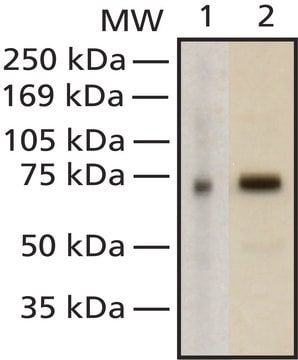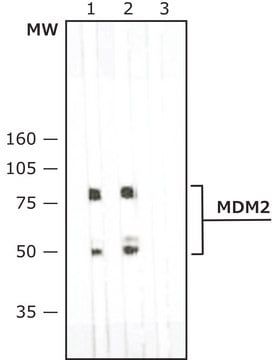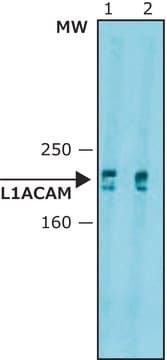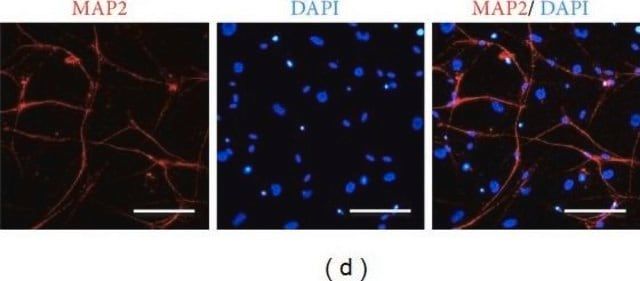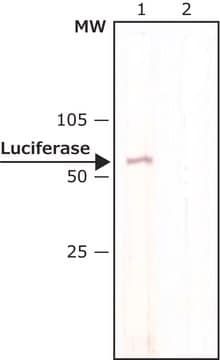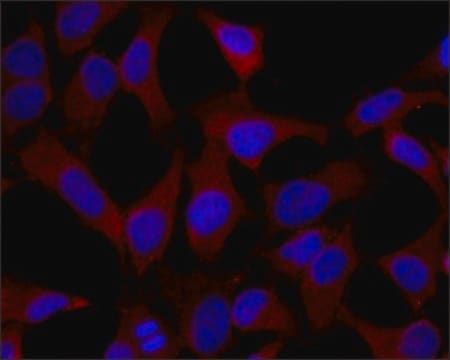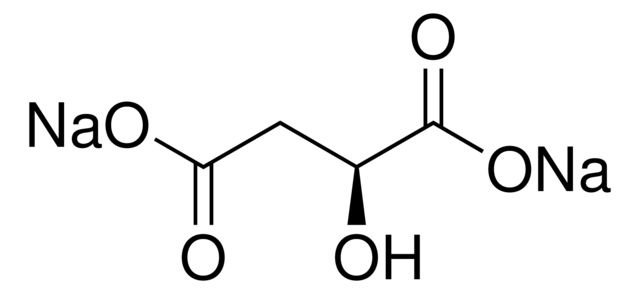M9067
Anti-MRP1 antibody,Mouse monoclonal
clone QCRL-1, purified from hybridoma cell culture
Manufacturer: Sigma Aldrich
Synonym(S): Anti-Multidrug Resistance Associated Protein 1
Select a Size
| Pack Size | SKU | Availability | Price |
|---|---|---|---|
| 200 μL | M9067-200-μL | In Stock | ₹ 76,767.60 |
M9067 - 200 μL
In Stock
Quantity
1
Base Price: ₹ 76,767.60
GST (18%): ₹ 13,818.168
Total Price: ₹ 90,585.768
biological source
mouse
Quality Level
200
conjugate
unconjugated
antibody form
purified from hybridoma cell culture
antibody product type
primary antibodies
clone
QCRL-1, monoclonal
form
buffered aqueous solution
mol wt
antigen ~190 kDa
species reactivity
human
concentration
~2 mg/mL
Description
- General description: Monoclonal Anti-MRP1 (mouse IgG1 isotype) is derived from the QCRL-1 hybridoma produced by the fusion of mouse myeloma cells (SP2/O) and splenocytes from mice immunized with non-denatured membrane preparations of human H69AR small cell lung cancer cell line, which highly expresses MRP1.
- Specificity: Does not cross-react with the human MDR1 and MDR3, mouse MRP1, and human MRP2, MRP3, MRP4, MRP5, and MRP6 gene products. The antibody may cross-react with canine MRP1.
- Immunogen: non-denatured membrane preparations of H69AR human small cell lung cancer cell line, which highly expresses MRP1. The epitope resides within amino acids 918-924 of human MRP1.
- Application: Monoclonal Anti-MRP1 antibody produced in mouse has been used in:western blotting immunohistochemistryflow cytometryimmunoprecipitationimmunocytochemistry
- Biochem/physiol Actions: Multidrug resistance associated protein 1 (MRP1) functions in the metabolism of many drugs. It is involved in transporting different biomolecules and anticancer drugs like prostaglandins, glutathione, alkaloids and anthracyclines. MRP1 offers resistance to chemotherapy to cells in solid tumors.
- Physical form: Solution in 0.01 M phosphate buffered saline, pH 7.4, containing 15 mM sodium azide.
- Disclaimer: Unless otherwise stated in our catalog or other company documentation accompanying the product(s), our products are intended for research use only and are not to be used for any other purpose, which includes but is not limited to, unauthorized commercial uses, in vitro diagnostic uses, ex vivo or in vivo therapeutic uses or any type of consumption or application to humans or animals.
SAFETY INFORMATION
WGK
WGK 2
Flash Point(F)
Not applicable
Flash Point(C)
Not applicable
